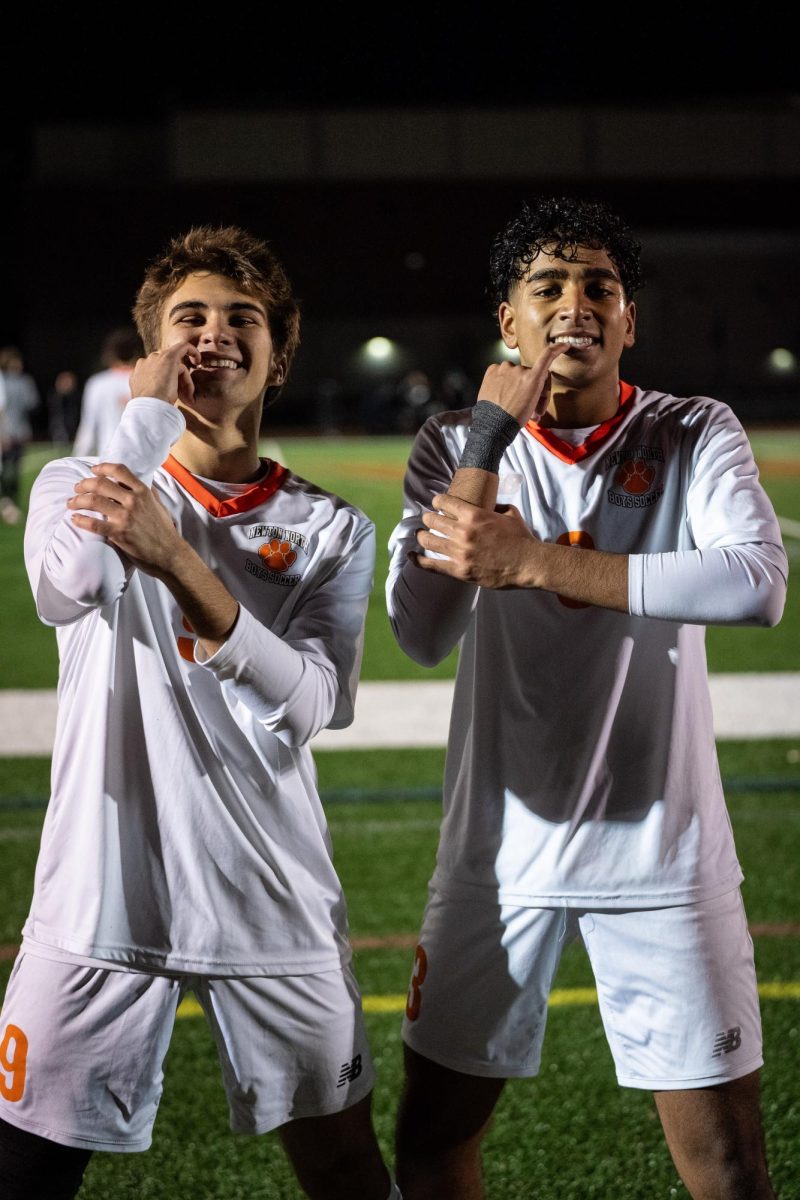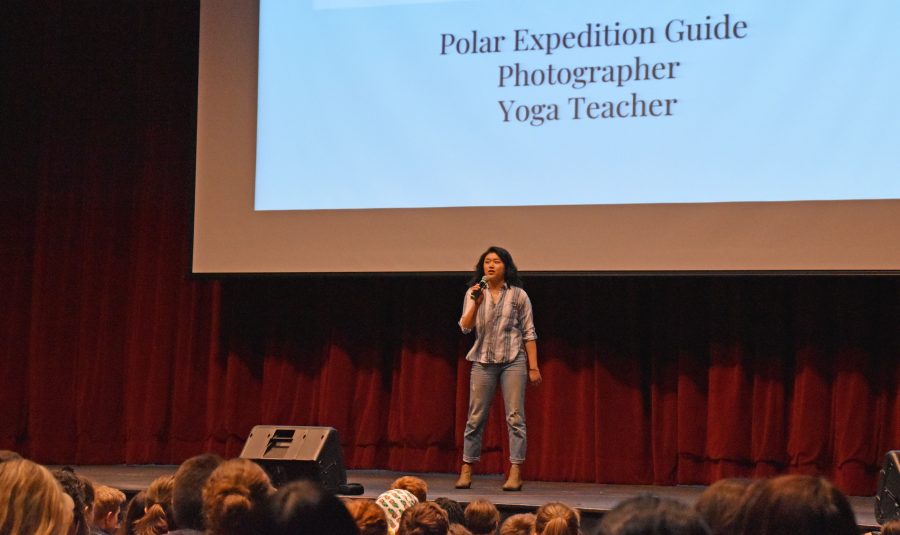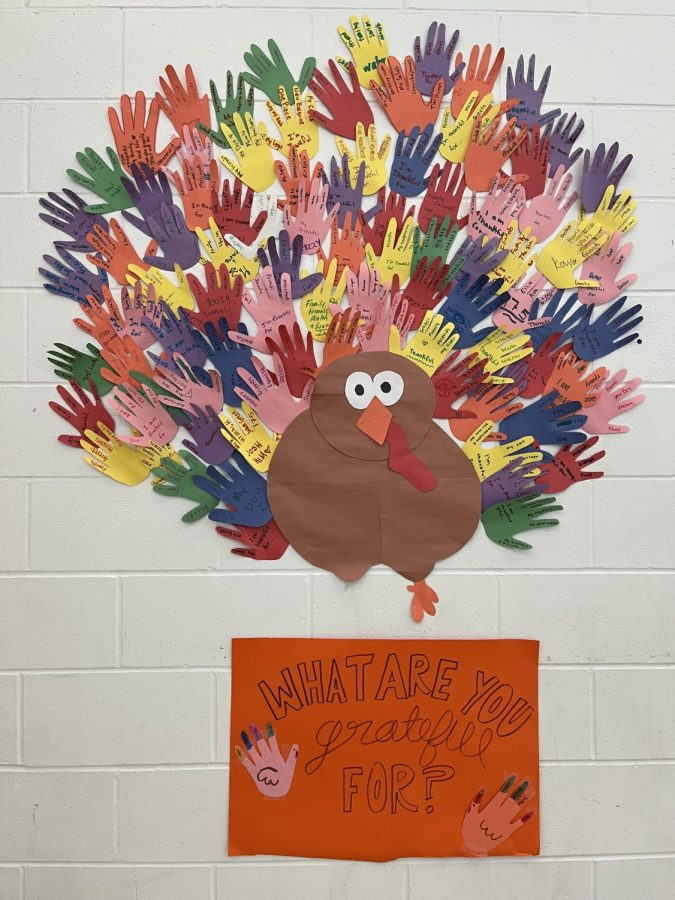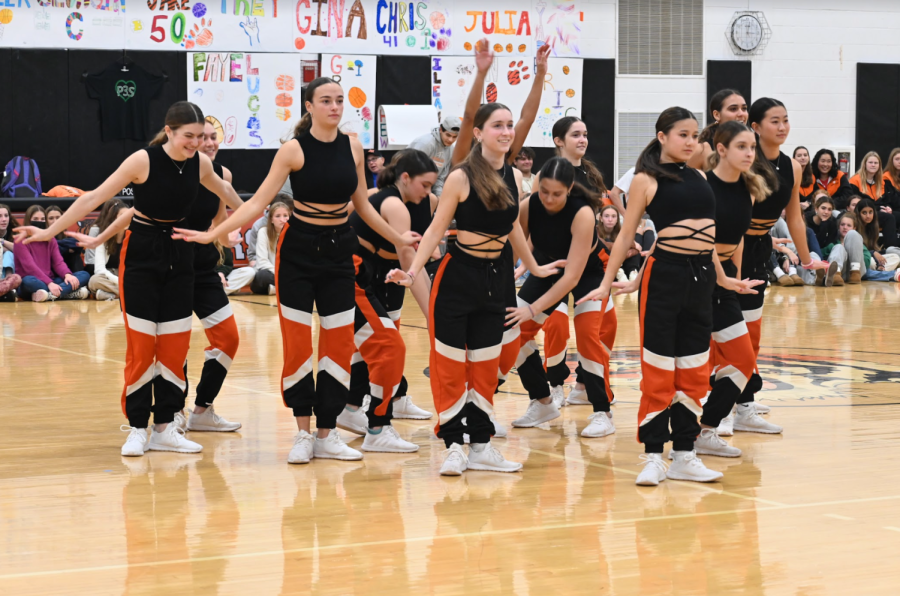A-block
by Jacques Abou-Rizk
Student panelists discussed their experiences as Asian American and how stereotypes have affected their lives a-block of Asian Culture Day in the auditorium.
The 12 students on the panel answered questions regarding their cultural identity, how to balance being bi-racial, and how to handle hearing generalizations about Asian-Americans.
“The idea that we are really smart and we all want to be doctors or engineers is just wrong,” senior Iman Sayeed said. “Full disclosure, I don’t want to do any of those things. Asians can also go out with friends and have fun, but there is a stereotype that we only care about our grades.”
Even the small number of movies and television shows that have Asians in the spotlight, senior Alexis Chin added, are often filled with stereotypes and generalizations.
“Asian’s get such little representation in the media, and I didn’t want to fit the stereotype that the media shows,” Chin said.
Not only accepting your race and culture, but also embracing it has proven to be quite difficult for many Asian Americans, Sayeed added.
“When I was younger, I tried really hard to be like my white friends and hide my Indian culture,” she said. “But it had a really negative effect on me and now I’ve learned to be proud of my heritage.”
B-block
by Sophie Fredberg
Poet and North Alumni Chen Chen ‘07 recited poems from his book When I Grow Up I Want to Be a List of Further Possibilities b-block of Asian Culture Day.
In his poems, Chen referenced events from his personal life, working to connect both the Asian culture and the homosexual culture. He paired the readings with an analysis.
“I am really thrilled and honored to be contributing to this growing discourse around these intersections of identities and experiences when it comes to LGBTQ identities and Asian American experiences,” Chen said. “ I think there has definitely been a lack, historically and also presently, of this kind of representation or these experiences represented well and accurately and to the fullest diversity. I’m just glad that I’m not the only voice because that’s how it’s been in the past.”
During his presentation, Chen described his relationship with his mother, a recurring topic throughout many of his poems. He explains how it affected his family dynamic and whole lifestyle.
When talking about coming out to his mother, Chen said, “I would say it’s difficult giving how close I was with my mom, so it definitely took a toll on our relationship.”
Chen also talked about many of his ideas for the future of his writing and how he might be straying away from poetry.
“A lot of my work is based on experiences, but I get bored, so some of my poems are based on imaginary poems,” Chen added. “I’ve been writing some creative non-fiction and it’s been really exciting. I think that there are a lot of things that poetry and creative nonfiction essays have in common like experimenting with form, using lyrical language on an image, or using personal experiences.”
D-block
by Amy Xue
Rupa Shenoy, a WGBH reporter, who is just one of around sixty people in the country who earn a living from telling stories through podcasts, spoke about her experience and struggles as a female Asian-American reporter during d-block of Asian Culture Day.
“A lot of newsrooms aren’t that diverse,” Shenoy said. Throughout history and even in today’s society, the journalism industry is often dominated by white males, who end up having many of the same views. According to Shenoy, this can be problematic, “We’re in a political time where many people see things opposite ways.”
Shenoy, who is originally from Iowa, was born to Indian immigrant parents. Her first job was at Chicago Reporter. She then worked at Associated Press news in Chicago, then Minnesota Public Radio, and finally at Boston Public Radio. There, she started a podcast in her downtime called ‘Otherhood’ about issues relating to race and identity to help give minorities a voice.
Eventually, her podcast was bought by Public Radio International and she went to work at one of their programs, The World, as a podcast host and radio reporter. Even though her podcast has been removed, she continues her own radio stories at her own website.
Shenoy added that there are multiple factors that the reporter has to take into account when writing a story.
“You have to think about your audience, yourself, and your sources because your story will be out there in the world for everyone to see,” Shenoy said.
Shenoy added that one of the hardest things about publishing a story is whether or not it will benefit or hurt the audience and the sources.
“There are a lot of things that will be uncomfortable to say because I know people won’t like them,” she said.“The first part of the fight is just to get it out there.”
E-block
by Dea Cela
North alumni and professional photographer, Emily Lee ‘16, discussed her experiences with racism and sexism in her fields of work e-block of Asian Culture Day.
Lee talked about how she didn’t feel happy until she broke out of her comfort zone and overcame the challenges she faced as an Asian woman, such as people doubting her and labeling her based on stereotypes. She discussed her multiple jobs such as being a yoga instructor, an Arctic expedition guide, a professional photographer, and a podcast host and how they helped her achieve happiness.
“I had my future planned out,” Lee said. “I was going to get into a good college, marry my boyfriend Ryan, retire, and die.”
However, after getting accepted to Northeastern with almost a full scholarship, Lee said she still felt unhappy. “For some reason, the plan was not making me happy,” Lee said. She decided to head to California “to do some soul searching.”
“People will have expectations. It’s up to you to prove them wrong or to make your own choices,” Lee told the audience. “Life is constantly changing, things come up, and happiness is what is most important.”
Lee stayed in California for a while, where she picked up the habit of taking photographs and became interested in photography. Lee then moved to Iceland, wanting to pursue photography, and while there, she discovered yoga. Later on, Lee was commissioned to travel to Antarctica to photograph there.
“I was on a boat with an all-male crew. I was the only woman there and the only person under 35. They didn’t think very highly of me because of who I am and what I look like,” Lee explained. “There were lots of uncomfortable moments and conversations.”
Although Lee did face the feeling that because of her race and gender, she was different than those around her, she learned that if she proved herself, she could overcome anything in her path and be happy.
Lee took the initiative to prove herself to her crew, by working hard hours on the ship and slowly, she started to gain their respect.
“Sometimes happiness is drinking tequila with a bunch of 40-year-old Russian guys on a rocking boat in the middle of the ocean,” she added.
G-block
by Maya Demissie
Asian American artists took part in a panel to show and speak about living on an artist’s salary and following one’s passion in the auditorium g-block of Asian Culture Day.
The panel consisted of artists Ben Bataclan, Felix Fu, Paul Nguyen, and Eric Pow. A slideshow presented their artwork as they spoke about their experiences as Asian American artists.
The panelists spoke about why they became artists, their upbringings, as well as their personal art style.
Freshman Tal Pemstein said they enjoyed the presentation. “It was so interesting to hear how the different artists worked so hard and overcame so much pressure, not only from other people but also from themselves in order to become the impressive artists they are today,” Pemstein said.
Pow added that he hopes the audience members see that being an artist is a job that anyone can make a living from so long as they work for it.
“You can be an artist and make a steady living,” he said. “Just follow what you’re passionate about.”
F-block
by Helen Xiao
South theater teacher Paige Perkinson informed students about the importance of diversifying theater casts and stories by sharing her own experience with Asian representation in theater f-block of Asian Culture Day.
Perkinson said that she hopes theater communities, both in the professional world and high school setting, will embrace inclusiveness.
“We are moving in the right direction by including people of color as well as white people, and casting people of all backgrounds to work alongside each other,” Perkinson said. “The next step is to also include stories of diversity.”
According to Perkinson, the lack of diversity in the theater community during her childhood made her stray away from her Asian roots and want to be white instead.
“Growing up, we didn’t see anyone like us Asians on television or in movies, so we felt like we didn’t have an option, since the only option was to be white to play these roles,” Perkinson said.
However, with more cultures being represented on screen and on stage in the past few years, Perkinson said she now realizes the importance of representation, and that she strives to represent her culture and become a role model for others.
“I no longer want my identity to be tolerated on stage, but to be accepted.” Perkinson added. “I want to act as myself, to represent my heritage and culture, and I hope other people of color will strive to do that too.”













































